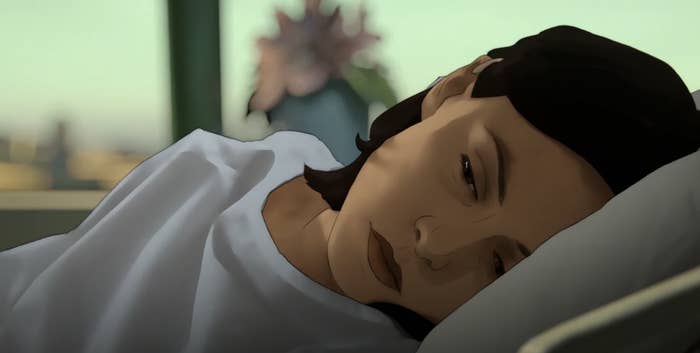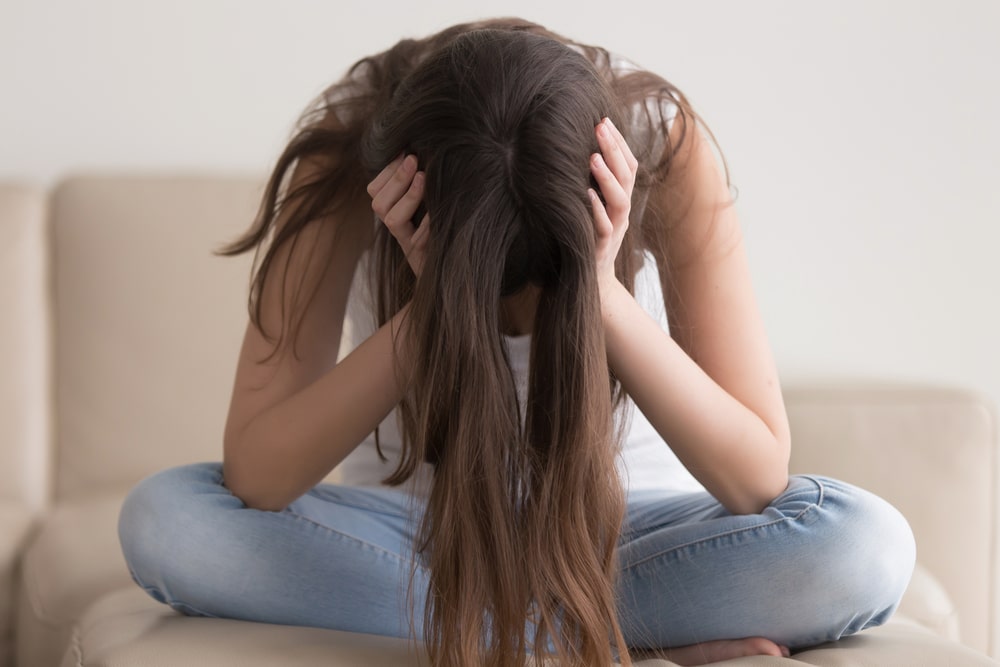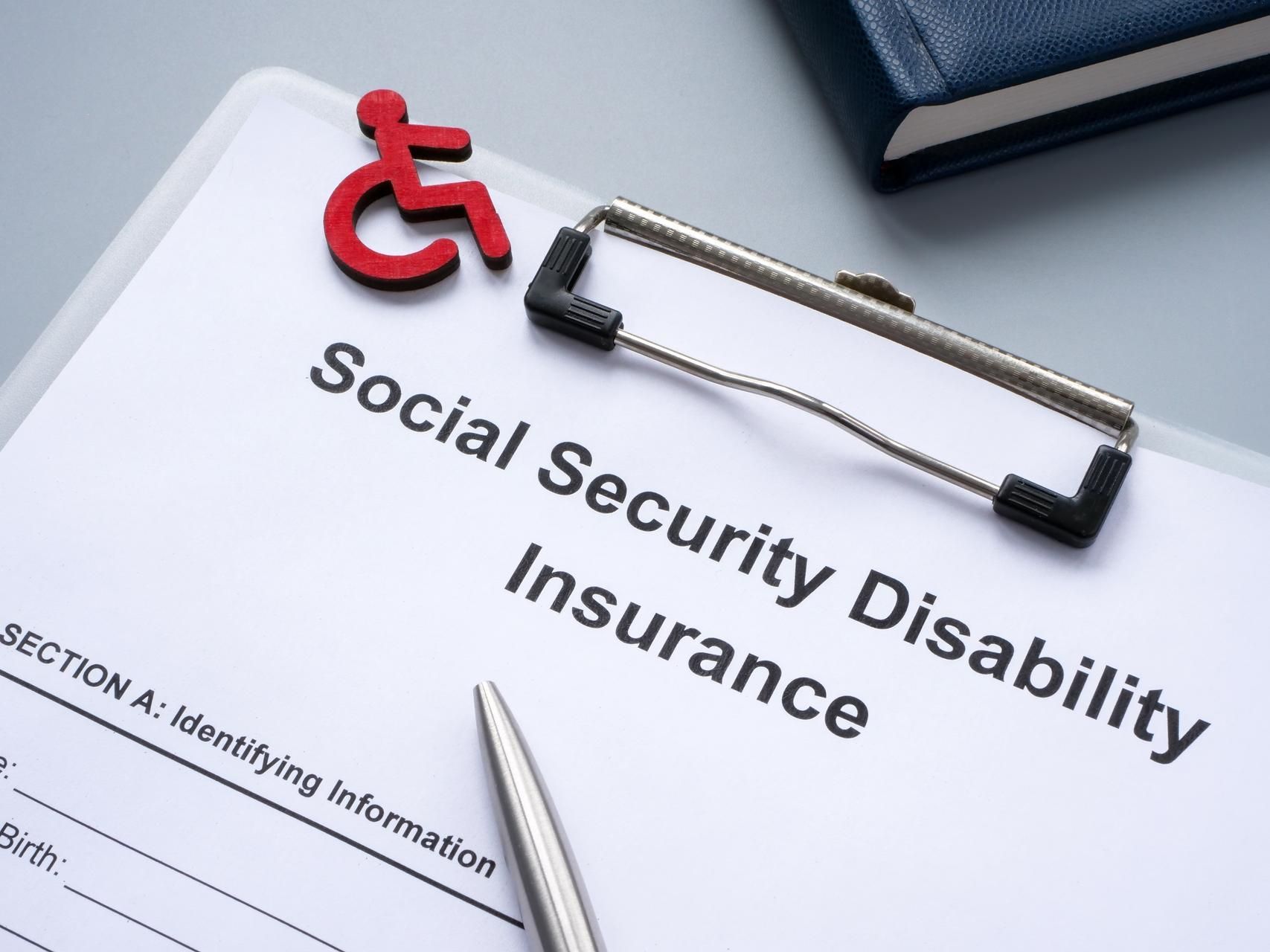25 Toxic Things Latino Parents Need To Stop Saying To Their Kids When It Comes To Mental Health
Latinos who have mental health illnesses oftentimes don’t get the care — or even have access to the care — needed to address them. According to the National Alliance on Mental Health (NAMI), just 33% of Latino adults with mental illness receive the treatment they need each year, compared to the 43% US average.

And according to Mental Health America (MHA), approximately 10 million US Latinos report having a mental health condition, with research suggesting that those numbers are continuing to grow.
Prime Video
There are a number of reasons why the level of care received is disproportionate, with language barriers, financial inequities, misdiagnosis, medical racism, and legal status all playing their part. But one of the biggest challenges many Latinos must face when addressing their mental health is the stigma around the illnesses themselves.

While many Latino parents and guardians do try as hard as they can to understand what their kids are going through, others simply just do not get it or understand it. It’s time to break down this stigma, so we asked the Latinos of the BuzzFeed Community to tell us the toxic things they’ve been told by their parents when addressing mental health.
Here are 25 of their stories/phrases they’ve heard over and over again:
Warning: This post contains mentions of suicide, self-harm, and disordered eating.
1.“Like all parents, Latino parents want what’s best for their kids and are very dedicated to providing that. But with mental health issues, a lot of the messaging was about how lucky our family was to be here, and things like depression were more about having the ‘wrong’ perspective. Considering how hard immigrant families have to work to get ahead, and their suspicion of the medical profession due to things like the well-documented racism in the field, that kind of response isn’t surprising.”
—Anonymous
2.“I’ve always been a shy and introverted kid. I was about 11 or 12 when my pediatrician noticed signs of depression in me and sat my parents down to talk about it and what options were available to me. My dad let my doctor finish explaining and then told her that I’ll be okay, I’m a strong girl. Didn’t even think to look into the matter, or get me help, or even ask me about it. My mom told me to just pray and God will help me. I’m 28 now and have never gotten the help I needed. Truth be told, I’ve been living with and burying that depression (and now anxiety) for years because I didn’t want to disappoint my parents and be their ‘strong’ girl. Im finally actively looking for professional help now that I don’t live with them.”
3.“My dad [died] when I was three, and as I got into my teen years a lot of major events started to take place — like a quinceañera and proms, etc., and all my friends dads were there, but mine wasn’t. I started to get really down about it and having outbursts of anger and crying and told my mom I needed to see someone. She said I was fine and doing that would hurt me in the future. Took a lot of fighting, but she finally caved and I am so thankful she did. Therapy is still a regular part of my adult life and honestly I don’t think I’d still be here if it wasn’t for it.”
4.“Huevona levántate.”
“Get up lazy girl.”
5.“According to my dear Mama, my depression stems from lacking a relationship with Jesus. Without religious meaning in my life, she’s not surprised I’m having an existential crisis. It couldn’t be because my spouse was falling out of love with me, I held up the house and took care of everything my late father did for her? I love her, but prayer cards don’t hold a candle to Zoloft.”
—Anonymous
6.“Neither of my parents had the vocabulary to define mental health, so I had to provide it for them. To them, my anxiety was me being ‘afraid of everything for no reason.’ My depression was just a ‘phase’ or me ‘having a bad day.’ This is how it was defined to them as children, and so they were trying to project that onto me. Their own mental wellness was ignored for so long, that they then didn’t even know how to begin addressing mine. In many ways, I am like their parent now, guiding them through their own unresolved issues as I try to navigate mine. We are all healing together now and I just wish this could have happened sooner for all our sakes.”
—Anonymous
7.“‘Have some food, you’re just hungry.'”
8.“My mom will believe in demons, angels, and ghosts — but when it comes to my anxiety — it just doesn’t exist to her.”
—Anonymous
9.“My mother would always tell me I was just being lazy, ‘Get up and do something.’ It’s even worse right now as an adult because I moved away and don’t really have anyone. I lost someone recently that was very close to me and she expects me to bounce back as if nothing happened, which is the reason why I hardly speak to her or the rest of my family these days.”
10.“As a teen I was told the books I read put bad ideas into my head. Calling me fat, and I ended up starving myself. When someone reported my self-harm and the nurse called them, they said they would take care of it and instead decided prayer was the way to go. It took me many years to forgive them and we are better now, but there was a lot of harm done.”
—Anonymous
11.“I used compulsive shopping as a mechanism for depression and all my dad said was, ‘Oh, you’re addicted to buying shit but not addicted to working?’ GTFO.”
12.“My parents have told me, ‘Es por que no haces nada,’ as if I’m not working a part-time job while also going to school full-time. They also take it as a personal attack each time I say I’m struggling. They weaponize the sacrifices they’ve made for me as a reason for why I should be happy. I love them and am grateful for everything they do for me, but this ain’t it.”
—Anonymous
“It’s because you don’t do anything.”
13.“’Todos nos ponemos tristes de vez en cuando, lo importante es no dejarse pensar mucho en eso.’ ‘We all get sad sometimes, the important thing is to not think about it too much’ — about my depression.”
14.“My mom just said that even psychiatrists are ‘crazy’ and that she knew of one that just committed suicide. I told her that I’m having trouble sleeping and she immediately told me that she never has any issues sleeping, as if this ‘problem’ I’m going through is not because of her. I sat in front of her for an hour, crying uncontrollably. She never once looked at me and continued to play solitaire on her laptop while I bawled.”
—Anonymous
15.“‘Estas muy chiquita para saber como se siente eso.'”
—Anonymous
“You’re too young to know how that feels.”
16.“I don’t think they have, but I never get to tell my mom that I have depression. She might just dismiss it and ignore it. Besides that, I’ve just worked everything out myself.”
—Anonymous
17.“Pues deja de pensar en eso.”
—Anonymous
“Well, just stop thinking about that.”
18.“Well, I am a Latin American person. I was born and lived all my life in Uruguay hoping to be old enough to study abroad because Uruguay is a small country with no opportunities for artists. Although it is an open-minded country (equal marriage and abortion have been legal for years), its citizens are more closed, and my parents show it. My mom grew up raising her siblings and says she “never needed a psychologist,” and my dad says with the number of murders on the continent, it’s better to kill yourself. Such is life every day. My parents believe that just because they survived a difficult life, I can do the same. This is a problem that can exist everywhere, but almost all my friends go through something similar. Latino parents are sweet, but they can hurt too much since they lived through a difficult childhood. Obviously I know how horrible it was, but they don’t understand that mental health is not just about how you live.”
—Anonymous
19.“I would have some signs of anxiety and depression when I was a teen. My mom would say, ‘You have no right to feel that way. You should have no worries right now, especially since you are not very smart and make mistakes every day.’ Or she would say that I was saying that as an excuse to get out of things and that my anxiety was something that only “crazy people would experience”. Thankfully I have opened her eyes to the real meaning and importance of mental health issues some years ago and she FINALLY gets it.”
—Anonymous
20.“‘Just pray and it will go away. There is no such thing as that, just toughen up.'”
—Anonymous
21.“They completely ignore the fact that most, if not all, my body and self-esteem issues have been caused by their constant jokes and comments since I was four. My mom has basically been my biggest bully and has put a lot of pressure on me being perfect, but won’t support me when I’m feeling depressed or anxious. I went through a really rough time when I was completely burnt out because of grad school and financial issues, and she said it was because I didn’t put enough effort into doing things well. When I had a miscarriage, she basically said it was my fault for not losing weight and not going to church enough, and that I didn’t need to get depressed about it. She thinks therapy is for ‘crazy people’ and pointless, and refuses to accept that her own childhood trauma made her a narcissist. Even my own therapist told me I should just not even try talking to my parents about deep issues because they hurt my mental health.”
—Anonymous
22.“I was diagnosed with a severe depression — had tried to end my life more than once. And my mom’s answer was to read a book and pray to get better.”
—Anonymous
23.“The last time I tried to seek therapy for my depression, my mom forced me to see a priest instead. Depression isn’t just some demon you can exorcise.”
—Anonymous
24.“Being handed a mop and a broom when I said I wasn’t feeling great mentally and getting told, ‘Ponte a limpiar tu cuarto para que no piensas de esas cosas.’ I don’t think they fully understand just how damaging that kind of reaction is, but I’ve been trying to get them to understand me more as the years go by and I’m getting through to them little by little.”
—Anonymous
“Clean your room so you can stop thinking about those things.”
25.“I think what many Latinx parents need to learn is that they need to respect their children as human beings, period. This idea that their children owe them respect no matter what [just] for being the parents, while at the same time barely acknowledging the kids’ basic rights, is outdated and toxic.”
Note: some submissions may have been edited for length/clarity.
The National Alliance on Mental Illness helpline is 1-888-950-6264 (NAMI) and provides information and referral services; GoodTherapy.org is an association of mental health professionals from more than 25 countries who support efforts to reduce harm in therapy.
The National Suicide Prevention Lifeline is 1-800-273-8255. Other international suicide helplines can be found at befrienders.org. The Trevor Project, which provides help and suicide-prevention resources for LGBTQ youth, is 1-866-488-7386.
The National Eating Disorders Association helpline is 1-800-931-2237; for 24/7 crisis support, text “NEDA” to 741741.








